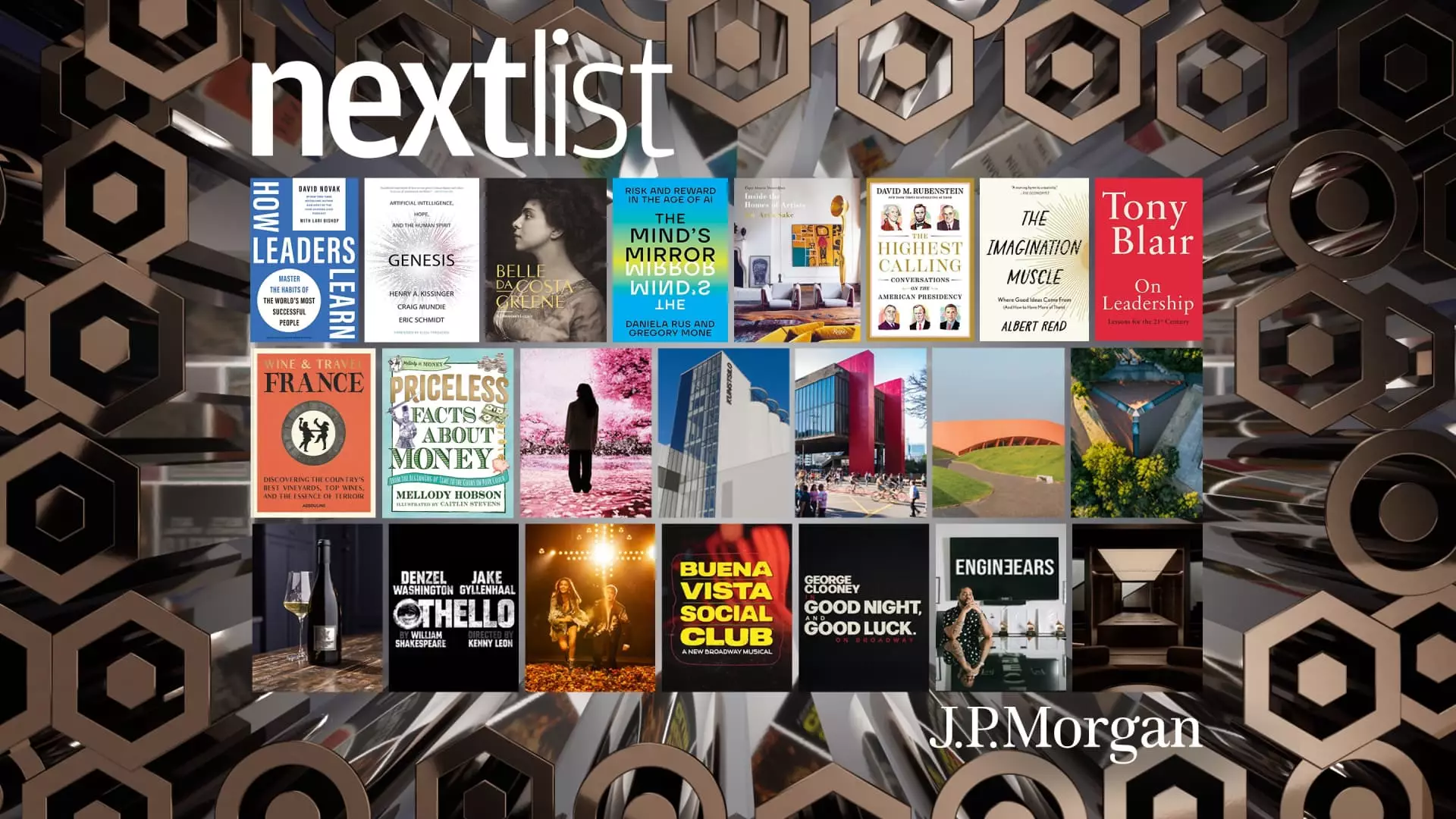In the realm of affluence, the way experiences and knowledge are curated for the elite serves as a window into their values and aspirations. J.P. Morgan Private Bank has made it a tradition to create a carefully crafted list showcasing the most attractive holiday gifts—dubbed the “NextList2025.” This year’s selection includes not just remarkable cultural experiences but also insightful books that align with leadership, innovation, and artificial intelligence, shedding light on the evolving interests of high-net-worth clients.
At the forefront of this year’s recommended experiences are a suite of exceptional museums. Foremost among them is the Mercer Labs in New York, an astonishing reimagining of the museum experience featuring 15 experimental exhibition spaces. This innovative venue emphasizes interactivity and immersion, shedding traditional gallery norms and signaling a shift towards more dynamic visitor engagement. As our world becomes increasingly digital, the capacity of such spaces to engage younger audiences cannot be overstated. This reflects an urgent need to adapt to shifting cultural consumption habits among affluent families.
Also featured is the Kunstsilo in Norway, nestled in Kristiansand—an art museum ingeniously housed in an old grain silo. This unique reuse of industrial space not only preserves Nordic art but also fosters a dialogue about sustainability and adaptability in art curation. This cultural initiative can resonate with modern wealthy clients who display a growing consciousness toward sustainable practices and the arts.
In São Paulo, Brazil, the iconic Museu de Arte de São Paulo Assis Chateaubriand is revealing an expansion that will increase its exhibition space significantly. This development is more than structural; it highlights a commitment to evolving outreach and educational programming aimed at younger generations and emerging art enthusiasts. Moreover, the Hampi Art Labs in India demonstrates a global expansion of the arts, embodying a philanthropic spirit as a hub for exhibitions and artist residencies.
Turning to the more indulgent side of the “NextList,” we have two prominent wineries, John Anthony Vineyards and Chappellet Winery, both situated in California’s Napa Valley. These establishments embrace heritage and sustainability in their winemaking processes—addressing growing concerns around environmental responsibility while delivering exclusive experiences for their affluent guests. High-net-worth individuals are often eager for immersive, luxurious experiences that also allow them to engage with knowledge about provenance and sustainable practices, thereby enriching their understanding of the finer details that make a quality wine.
The emphasis on such curated experiences goes beyond mere entertainment; it speaks to a desire for more meaningful connections with culture and craftsmanship. These wineries underscore a turning point where traditional luxury meets conscientious consumerism, inspiring clients to embrace the future without forgetting their past.
Accompanying the immersive experiences is a selection of thought-provoking books that target the shifting paradigms of leadership and innovation. Titles like “How Leaders Learn” by David Novak, and “Genesis: Artificial Intelligence, Hope, and the Human Spirit” involving prominent thinkers such as Kissinger, Mundie, and Schmidt, represent a profound introspection on how current and future leaders can navigate a landscape altered by rapid technological advancement.
The prevalence of texts that focus on leadership and its multi-faceted nature indicates that affluent clients are in pursuit of knowledge that can empower them, not only as individuals but as stewards of their families’ legacies. **”The Imagination Muscle” by Albert Read and “On Leadership” by Tony Blair** further suggest a thirst for innovative approaches to governance and decision-making—areas that are crucial as families plan for generational wealth transfer.
J.P. Morgan’s strategy, as expressed by Darin Oduyoye, the bank’s chief communications officer, underscores an acute awareness that clients are increasingly focused on engaging their next generation. This generational shift points to the bank’s recognition that the habits of today’s wealth holders will influence how inheritances are managed and embraced in future generations.
J.P. Morgan Private Bank’s “NextList2025” serves as a guiding beacon for its wealthy clientele who seek a convergence of luxury, culture, and enlightenment. A holistic approach that includes stunning experiences and insightful literature speaks to an evolving dependency on both cultural engagement and educational growth. The bank’s efforts to cater to its affluent clientele highlight an important paradigm in wealth management: the proactive engagement with emerging generations and their values.
Ultimately, the “NextList2025” is more than just a holiday guide; it’s a testament to the changing landscape of wealth and its interplay with culture and education, serving as a reminder that the pursuit of knowledge and rich experiences will always define true luxury.

Leave a Reply